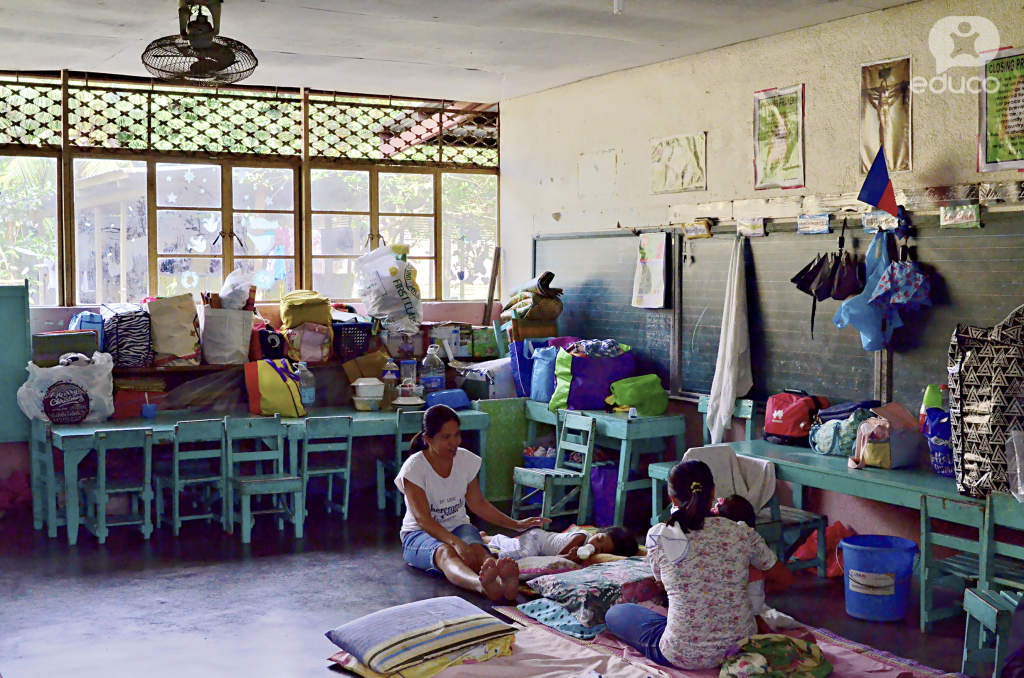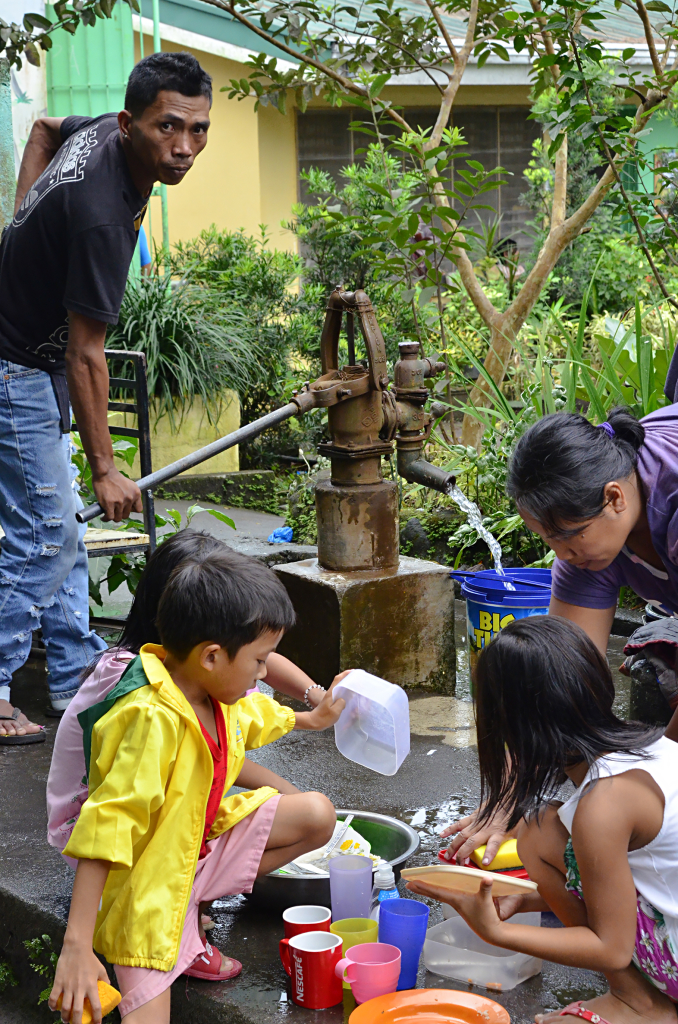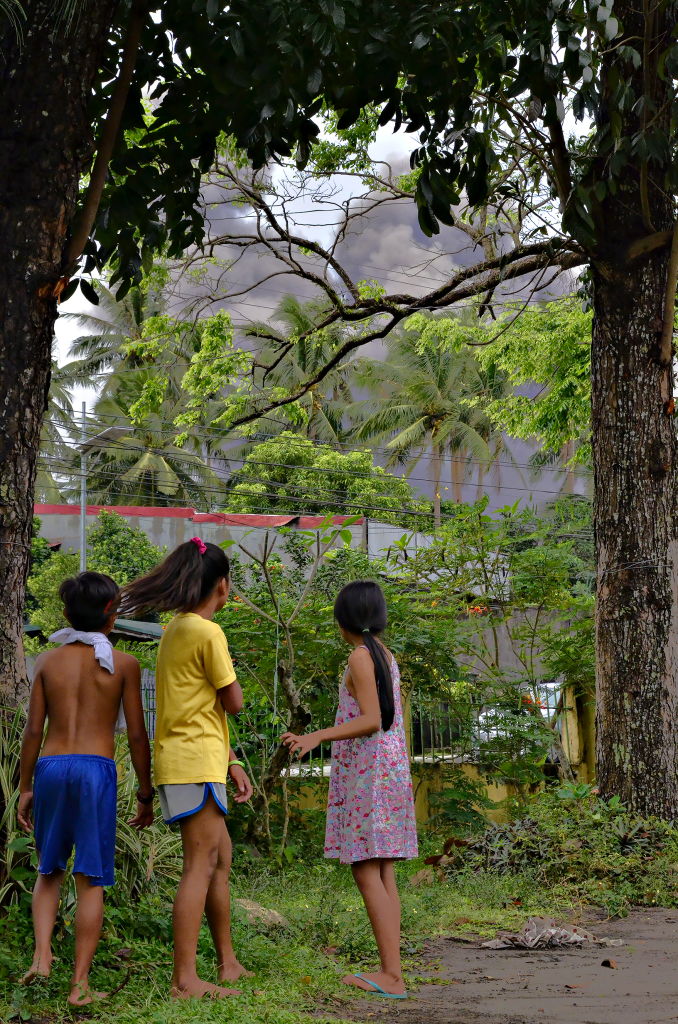19 January 2018, Legazpi City—According to a Department of Education-Bicol report dated January 16, a total of 8,703 school children were affected by the Mayon Volcano Eruption—5,568 of these are in EDUCO-covered communities. Fundación Educación y Cooperación – EDUCO obtained this report from its coordination efforts during its rapid needs assessment.
These children are part of the 9,480 families or 38,939 people from 36 barangays in Albay Province that were displaced and disrupted by the disaster that started in January 13, based on the January 17 situation report of the Office of Civil Defense of Bicol Region.
EDUCO’s assessment was completed on January 18. It covers the towns of Camalig, Daraga, Guinobatan, and the cities of Legazpi and Ligao, where EDUCO currently operates. The assessment found that the Philippine law mobilizing schools as evacuation centers and teachers as the camp managers is likewise being cited as the primary reason that children’s right to education are not protected, particularly during disaster.
On top of this, results show that 57 percent of evacuation centers have no accessible sanitary facilities and 26 percent does not have enough water supplies, with 38 percent of affected families needing water treatment kits. As observed, 20 to over 30 families stay in one class room in an evacuation center, sharing tasks to keep the room clean and safe, and sometimes with activities for children and evacuees. Departments of Social Welfare, local governments, and other agencies have started providing relief and services to evacuees.
Another notable result of the EDUCO assessment was that only 21 percent of evacuation centers have areas for breastfeeding. Only four of the 30 centers had breastfeeding areas compared to the 2044 lactating mothers in evacuation centers.
With data particular on children unavailable, EDUCO found it difficult to identify the specific needs of affected children. Based on data gatherer’s observation, however, affected families needed food, water, and sanitation materials. To ensure child protection, help desks for children, female police/tanod, data or information on protection mechanisms are highly needed as well.
To ensure that children’s right to education is protected even during or after disasters, temporary learning spaces and child-friendly spaces can be set up. Teachers who are not mobilized in operating centers are likewise necessary for resuming education as soon as possible. Of course, breastfeeding areas, care providers, medicine and supplies, and supplements are also needed.
In response to the Mayon Eruption, EDUCO is mobilizing resources including its emergency funds and started coordinating with other NGOs to complement response efforts. EDUCO will also look into coordinating with the Department of Education in Bicol and other agencies concerned to find solutions for keeping disruptions to children’s education to a minimum.
Aside from completing its rapid needs assessment, EDUCO has done orientation on Minimum Standards for Child Protection in Emergencies as well Temporary Learning and Child-Friendly spaces for all its personnel.
No casualties have been reported resulting directly from the Mayon eruption. As of 5:00 AM today, evacuees in Legazpi City, who are residents within the seven to ten-kilometer zone, have been sent back home by the government. They will, however, be evacuated again should alert levels rise. Residents within the six-kilometer permanent danger zone remains in evacuation centers. See the full EDUCO situation report here.#








